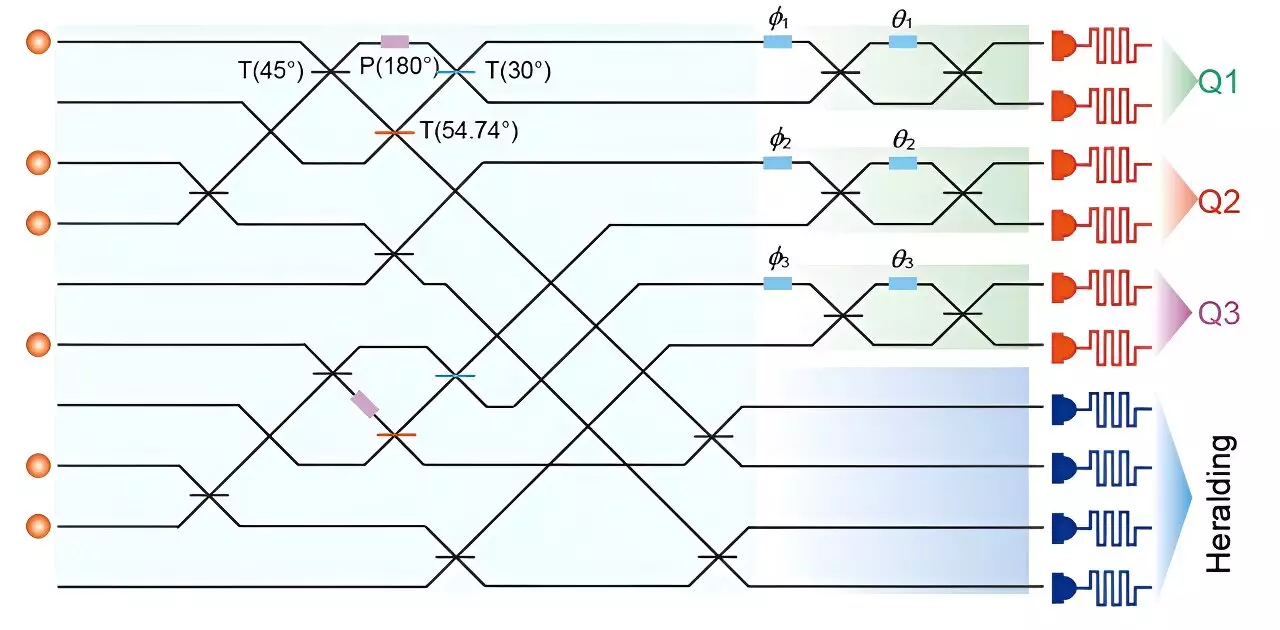Photonic quantum computers hold tremendous promise in terms of speed and efficiency, as they leverage particles of light to process information. However, one of the main challenges faced by researchers is the weak interaction between individual photons, which inhibits the realization of deterministic two-qubit gates essential for scalability. To address this issue, concepts of fusion and percolation have emerged as scalable approaches in realizing quantum computation in photonic systems.
Fusion and percolation have been identified as potential solutions to the challenges faced in photonic quantum computing. By fusing small resource states into large-scale cluster states, researchers can facilitate measurement-based quantum computing without the need for deterministic entangling gates. This approach has the potential to revolutionize the field of quantum computation and accelerate the development of fault-tolerant photonic quantum computers.
In a recent study published in Physical Review Letters, researchers at the University of Science and Technology of China demonstrated the generation of a large cluster state, specifically a three-photon Greenberger-Horne-Zeilinger (3-GHZ) state. This achievement represents a significant milestone in the quest for fault-tolerant photonic quantum computing. The researchers employed a near-deterministic method of generating entangled clusters in a heralded fashion, showcasing the potential of this approach in realizing large-scale optical quantum computers.
The experimental setup utilized by the researchers involved six single photons injected into a 10-mode passive interferometer, with an InAs/GaAs quantum dot serving as the single-photon source. This state-of-the-art source demonstrated an overall efficiency of 50%, making it a promising tool in the development of photonic quantum computers. Through specific unitary transformations, the researchers were able to generate a dual-rail encoded heralded 3-GHZ state, marking a significant achievement in the field of quantum computation.
The recent work by Wang and his colleagues builds upon previous advances in the field of photonic quantum computing, showcasing the potential of large cluster states in enabling fault-tolerant, measurement-based quantum computing. With the development of scalable approaches such as fusion and percolation, researchers are moving closer to the effective realization of fault-tolerant photonic quantum computers. The future holds exciting possibilities in the field of quantum computation, with the potential for further advancements in harnessing the power of photonic quantum computers.


Leave a Reply